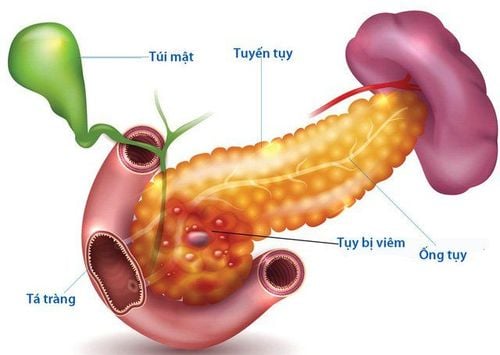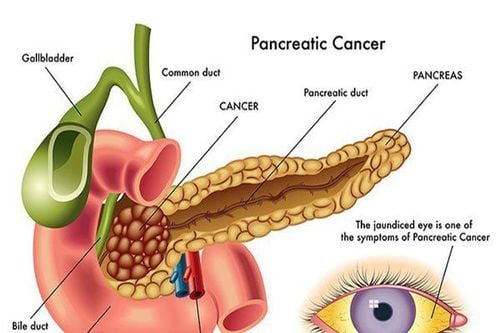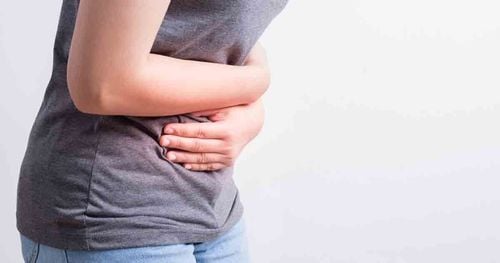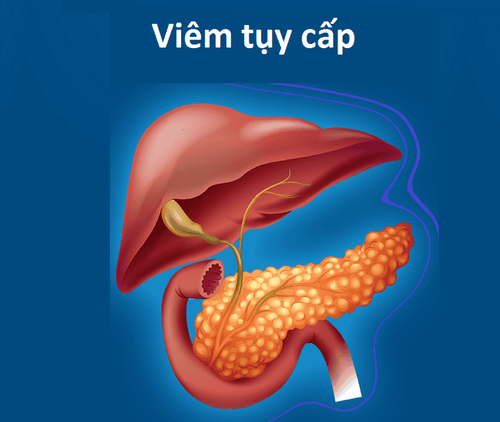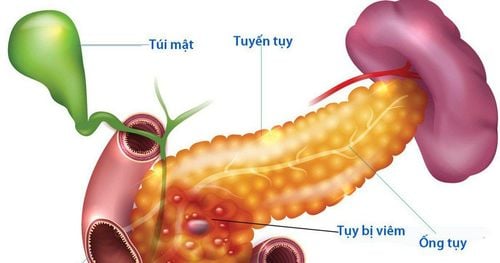This is an automatically translated article.
The article is expertly consulted by a Doctor of Gastrointestinal Endoscopy - Department of Medical Examination & Internal Medicine - Vinmec Da Nang International General Hospital.Acute pancreatitis is currently a concern of many people, because complications of the disease can lead to death if not taken care of and treated promptly. An attack of acute pancreatitis can occur after just a single drink or after a nutritious meal.
1. What is acute pancreatitis?
Acute pancreatitis is an acute inflammation of the pancreas leading to follicular cell damage due to the destruction of pancreatic enzymes, ranging from mild to severe and can lead to many complications, even death.2. Causes of acute pancreatitis
Some of the main causes that can cause acute pancreatitis are as follows:Gallstones Alcohol and alcohol Increase in blood triglycerides After surgery around the pancreas, after endoscopic cholangiopancreatography - retrograde Inherited Drugs Injury to the pancreatic duct: Due to trauma Pancreatic trauma Other causes: Metabolic disorders such as hypercalcemia, gallstone microlithiasis, biliary tract, biliary obstruction due to worms in the bile duct, peripapillary diverticulum Vater, Pancreatic tumor or peripapillary tumor, autoimmune pancreatitis, duodenitis and papillary stenosis secondary to celiac disease, bacterial, viral, fungal, parasitic, vasculitis and anatomic malformation of the biliary tract, idiopathic pancreatitis.
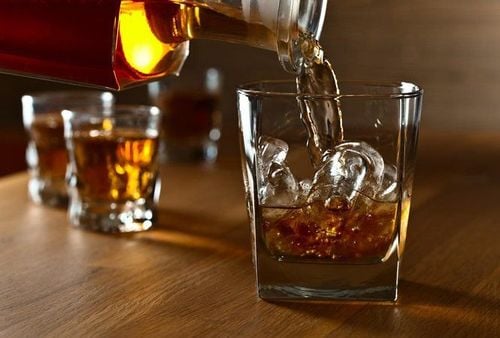
Nghiện rượu, thuốc lá có thể là nguyên nhân gây viêm tụy cấp
3. Risk factors for acute pancreatitis
The following are risk factors for acute pancreatitis :Gallstones Abuse of alcohol Alcoholic worms Pancreatic duct worms Specific medications such as furosemide and azathioprine Estrogen use Hyperthyroidism syndrome and elevated blood calcium levels Mumps Hyperlipidemia syndrome (especially hypertriglyceridemia) Pancreatic injury due to laparoscopic or laparotomy Pancreas Severe hypoperfusion (prolonged shock) Hereditary pancreatitis Renal transplantation
4. Complications of acute pancreatitis
The following are complications of acute pancreatitis:Decrease in blood volume: Intravascular coagulopathy may occur as in the case of hemorrhagic necrotizing enterocolitis Pancreatic necrosis: Severe infection, accompanied high fever 39-40 degrees lasting (more than 1 week), very painful pancreatic area Pancreatic pseudocyst: Pancreatic area has mass, when pressed, it is tight and tight. Ascites due to perforation or rupture of pancreatic duct or pancreatic pseudocyst into the abdomen, in case of acute hemorrhagic pancreatitis caused by vascular necrosis causing intra-abdominal bleeding Acute respiratory failure: effusion, atelectasis or left pneumonia

Viêm tụy cấp có thể gây biến chứng nhiễm trùng nặng, kèm theo sốt cao 39 - 40 độ kéo dài
5. Pathophysiology of acute pancreatitis
Normally, the exocrine pancreas secretes pancreatic juice, followed by the pancreatic juice pouring into the 2nd part of the duodenum. Pancreatic juice contains digestive enzymes that destroy the pancreas itself. The pancreas will have mechanisms to avoid such self-dissolution.Initially the proteins will be converted into pro-enzymes which are stored in special compartments by Golgi. Pancreatic juice will be excreted in an inactive form. On the way from the pancreatic duct to the duodenum and when it reaches the duodenum, digestive enzymes will be activated.
Obstruction of pancreatic juice circulation due to the appearance of stones from the bile ducts or because worms from the intestines come up, causing fluid stagnation in the lumen of the pancreatic duct. When the obstruction is temporary, the damage is usually limited and reversible, but if the obstruction persists, the above-activated enzymes will accumulate in the pancreas more than the inhibitors.
The amount of activated enzyme will attack and damage, causing severe pancreatitis. The released chemicals have the effect of causing the accumulation of inflammatory cells. Neutrophils are activated, making the injury worse. Finally, macrophages secrete local inflammatory cytokines.
Continuous and prolonged use of large amounts of alcohol causes the small pancreatic ducts in the pancreas to become narrow and can become blocked causing pancreatitis.
Please dial HOTLINE for more information or register for an appointment HERE. Download MyVinmec app to make appointments faster and to manage your bookings easily.





